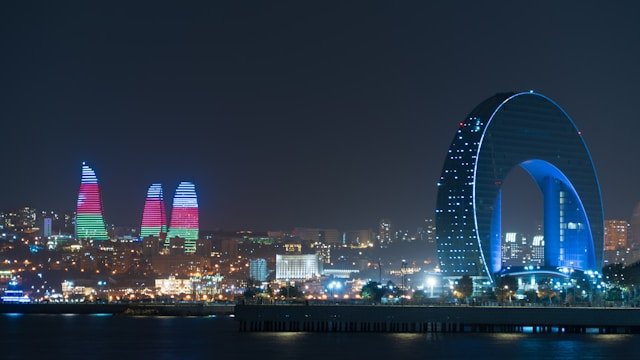BAKU, July 21 — A large-scale demolition campaign targeting unsafe and aging buildings in Baku has triggered a dramatic surge in demand for rental units and new-build apartments, sending property prices soaring across the capital.
According to Vugar Orudj, head of the Azerbaijan Appraisers Society, the housing market is experiencing intense activity as both citizens and investors redirect their funds toward real estate, viewing it as a safer and more profitable asset compared to bank deposits.
“With annual deposit rates at 12%, and real estate appreciating by 15 to 20% annually, property investment has become a double-yield opportunity,” Orudj told Trend. “On top of capital gains, rental income provides a second stream of profit with fewer risks.”
Stay Ahead with Azerbaijan.usGet exclusive translations, top stories, and analysis — straight to your inbox.
Rising Conflicts Over Compensation
However, the demolition push is not without controversy. Disputes have erupted as some residents reject the demolition of their homes or dispute the compensation offered. Orudj explained that while residents have a legal right to contest assessments in court, most of the buildings slated for demolition are structurally unsound and hold little market value.
One of the most pressing concerns is that compensation rarely covers the cost of a new apartment in the same area, deepening dissatisfaction among displaced residents.
“A more just approach would be to rebuild on the original site and provide the displaced families with new apartments,” Orudj suggested. “Alternatively, compensation should be based on current market prices per square meter in similar neighborhoods.”
He added that small, old apartments present a particular challenge: “Residents seeking larger living spaces should either receive 20% more square footage or additional compensation, determined case-by-case.”
Supply Shortages, Construction Rules, and Price Hikes
Real estate expert Elnur Azadov pointed to multiple systemic issues fueling the surge in prices. He noted a sharp drop in reconstruction projects since 2020. From 2016 to 2018, over 120 old buildings were renovated, invigorating the market. But today, such projects have decreased nearly tenfold.
Stricter building regulations imposed by the State Committee for Architecture have further limited development. For example, developers used to build up to 50,000 square meters per hectare—today, that limit has been slashed by 50–60%, significantly raising the cost of development.
Other factors also play a role. Azadov cited the return of Azerbaijani citizens from Russia and Ukraine due to ongoing war, who are actively buying homes, and the soaring price of construction materials. The cost of rebar has jumped from 780 to 1,250 manats per ton, while other materials have increased by 5–25%.
“The government’s approval of Baku’s new master plan in early 2024 hasn’t yet reignited the sector,” Azadov said. “Construction permits remain limited, and this directly affects pricing.”
Housing Shortages and Official Numbers
According to Azadov, 1,100 out of 16,000 expired buildings are classified as dangerous or partially uninhabitable. 194 buildings are deemed unfit for residence. A special commission is overseeing their demolition as part of a broader stabilization plan for the housing market.
“Only an increase in supply and competition among developers will stabilize prices,” he stressed. “Otherwise, high prices in Baku will continue—and eventually spread to other regions.”
Official Stats: 32% Housing Price Surge Since 2020
According to government data:
Housing prices have risen by 32% since 2020.
In 2024 alone, primary market prices jumped 11.3%, while the secondary market rose 9.8%.
In 2024, 20,149 private homes were built in Azerbaijan.
11,502 by citizens
6,341 by private firms
2,306 by government entities
Investments in residential construction totaled 2.573 billion manats, a 92.8% increase compared to the previous year. As of late 2024:
The real estate sector employed 19,600 people, with an average monthly wage of 1,073 manats.
State sector: 1,250 manats
Private sector: 1,007 manats
The construction sector contributed 8.478 billion manats to GDP.
Related investments reached 5.354 billion manats, up 11.8% year-on-year.
The sector employed 119,100 workers with an average monthly wage of 1,083 manats.
Boom Without Balance
While the housing boom signals economic activity, critics argue that the government’s compensation framework remains outdated and fails to meet the realities of the modern housing market. The lack of transparent pricing mechanisms and under-regulated developer practices risk widening inequality and pricing lower-income residents out of central areas.
If current trends continue without deeper reform, Baku may face an affordability crisis—with property increasingly becoming the preserve of investors, not families.


